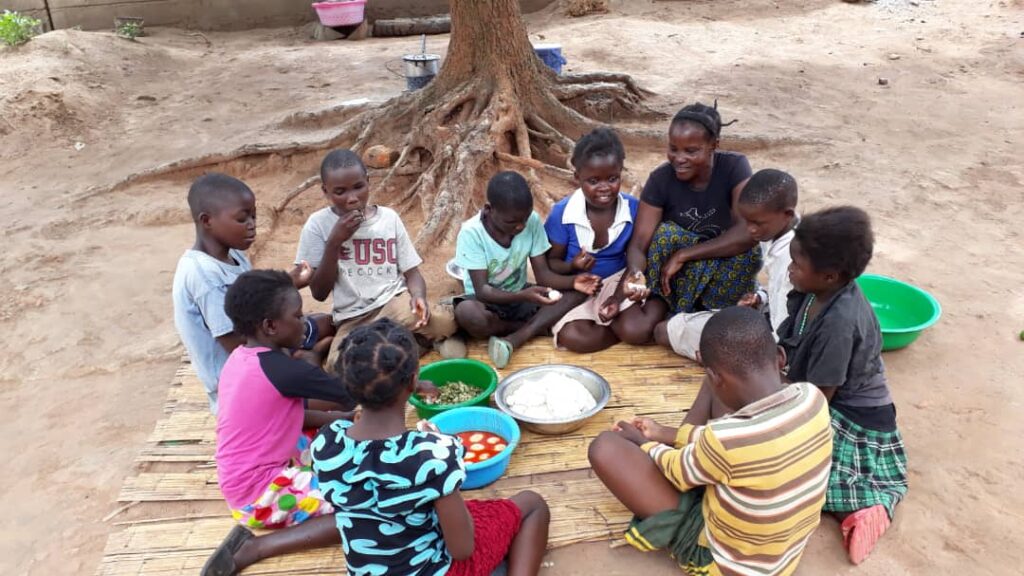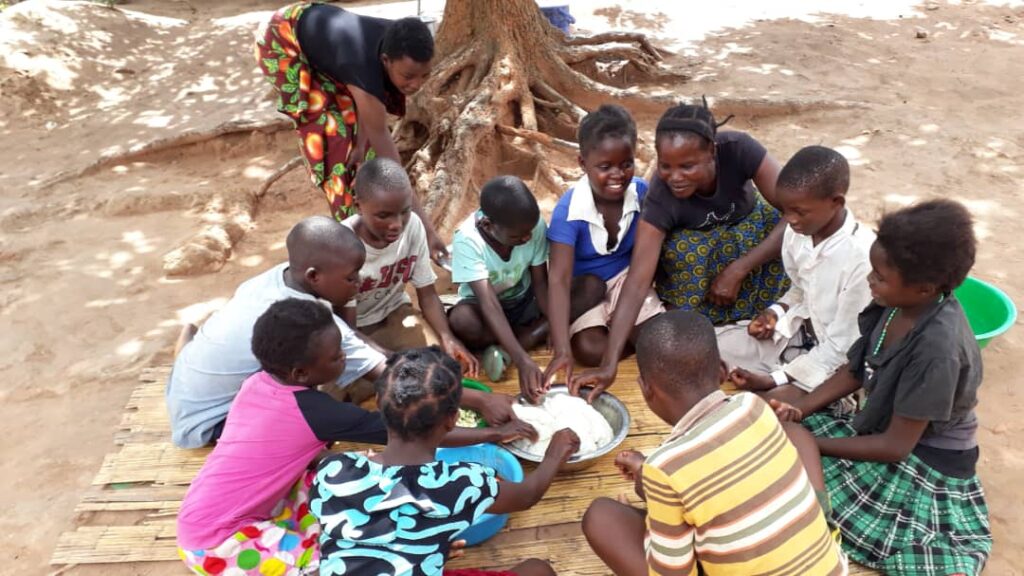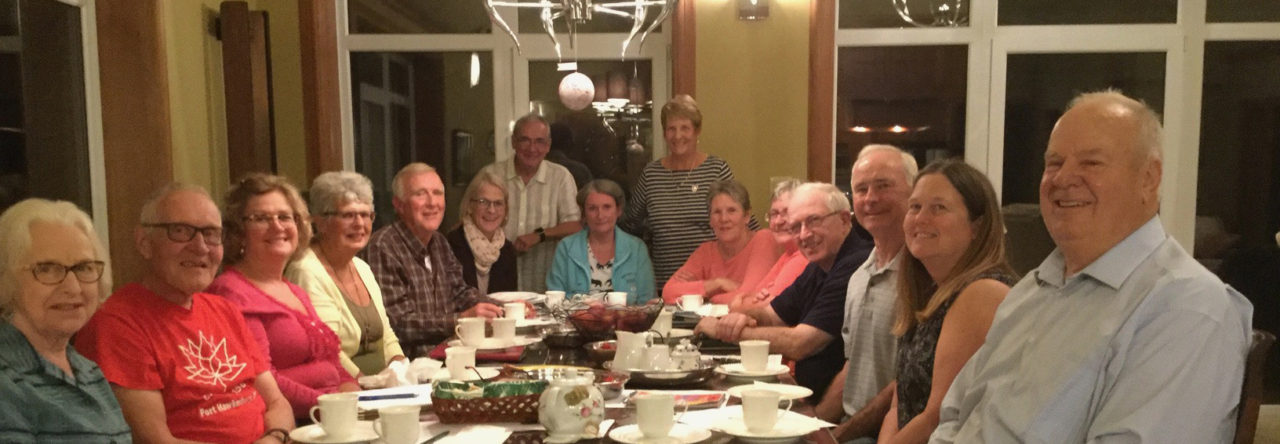Kawambwa site sends Christmas and New year greetings to the Inverness County Cares team, donors, sponsors, and volunteers. May the New Born Christ give you all the graces you need in your lives. We love you all. Merry Christmas and a prosperous New Year. Sr Agnes and Kawambwa team.
THE HIDDEN JOY OF CHRISTMAS.
By: Sr Agnes Bwalya, Kawambwa, Zambia
Christmas is a season that everyone waits for and is the Hidden Joy of Christmas that we long for!
Christmas is celebrated with a lot of symbols and its celebration starts with a lot of preparations. In the village and at every home, parents start by preparing what to eat and what their children will wear. The children, they think of what they will receive from their parents and what they will give to others. Village chickens, goats, cow, dried fish, local beer and local drinks are set aside just for Christmas. Everyone thinks of what will be shared with others.
The asking of a gift is done in a symbolic way, very early in the morning, one will move with branches and visit a home, knock and shout “Christmas” and leave a branch at the door. The owner of the house comes out, gives the one who brought the branch anything she/he has. If one doesn’t have any food to give, he/she will come out with a cup of water, the other person receives it and drinks, and the games continue.
On the very day of Christmas, families, friends will visit and eat together during the family meal. It is the responsibility of an elderly person to explain to others about the importance of sharing. Food is served and visiting of grandparents is commonly done. The old grandparent will prepare something for whoever visits them, if they do not have anything to give at the end of their visit, they will bless their children by touching their forehead and saying, “Be disciplined and grow old as I am.” It is now that grand children get wrappers and bracelets from their grandmothers, who has been receiving but not wearing. Grandparents feel happy for the visits by young ones. During the visit what is avoided, is to recall any conflict that occurred before, to individuals or among family members. Each one makes sure that joy of Christmas is maintained. It is very common that a dress, shirt, wrapper, shoes, is kept in a suitcase for so many months, just waiting to be put on at Christmas. It is a long preparation which calls for patience as well.
In some areas like Kawambwa and in other parts of Zambia there is a flower which is named ‘Christmas flower’ because it grows and blossoms during the early rains. This is a precious flower that young adults look for and gives to their loved ones as an engagement for marriage. It is commonly done in our village during Christmas and New Year time. When a young girl is given a Christmas flower by a young boy, the girl takes it to her grandparents or aunties. It is self-explanatory that the boy wants to marry their daughter.
The celebration of the New Year starts at Christmas, parents bless their children by word of mouth and by exchange of gifts. The size of the gift does not matter, what matters is the exchange and the eating of food together.
At our two schools, the traditional way of celebrating Christmas and New Year is practiced, and it is a long preparation for everyone. On the last day of the term, each child has to look for something good to do to the other child, or to a friend. Exchanging of branches is done (it must be a branch from a tree that gives us food; such as from a mango tree or a guava tree.) It means a sign of taking care of my friend, giving him/her fruit that can sustain one’s life. Each person finds time to help a friend in some way by washing clothes, sweeping, helping with lessons, but without someone asking for help. Members of staff teach students the importance of sharing. Sometimes elder children on behalf of small children go out to help old parents in the nearby village, visiting the hospital and other charitable works. In the evening they come together for social recreation, sharing of water is commonly done and everyone longs for this time. Small actions are performed to one another silently the main aim of doing these actions is to tell another person that I can help with my free will.
At church, the traditional way of making a kraal (a traditional African village of huts, typically enclosed by a fence) is done as we do at home. Banana leaves and plants surrounds the kraal and model of Jesus, Joseph and Mary and the stars are inserted. It is a sacred and holy place for us, because it reminds us of the place where Jesus was born. During Mass a basket of assorted fruits and seeds covered by branches is offered. It is a good sign of sharing the togetherness and oneness as we worship, EMMANUEL meaning GOD IS WITH US AND AMONG US FULL OF LIFE.
Inverness County Cares always welcomes new members. Individuals who wish to donate, can use the donate button on our website http://invernesscountycares.com
e-transfer to invernesscountycares@gmail.com
or send a cheque to Inverness County Cares Box 99, Judique, NS, Canada, B0E1P0. Taxation receipts provided for USA and Canada.
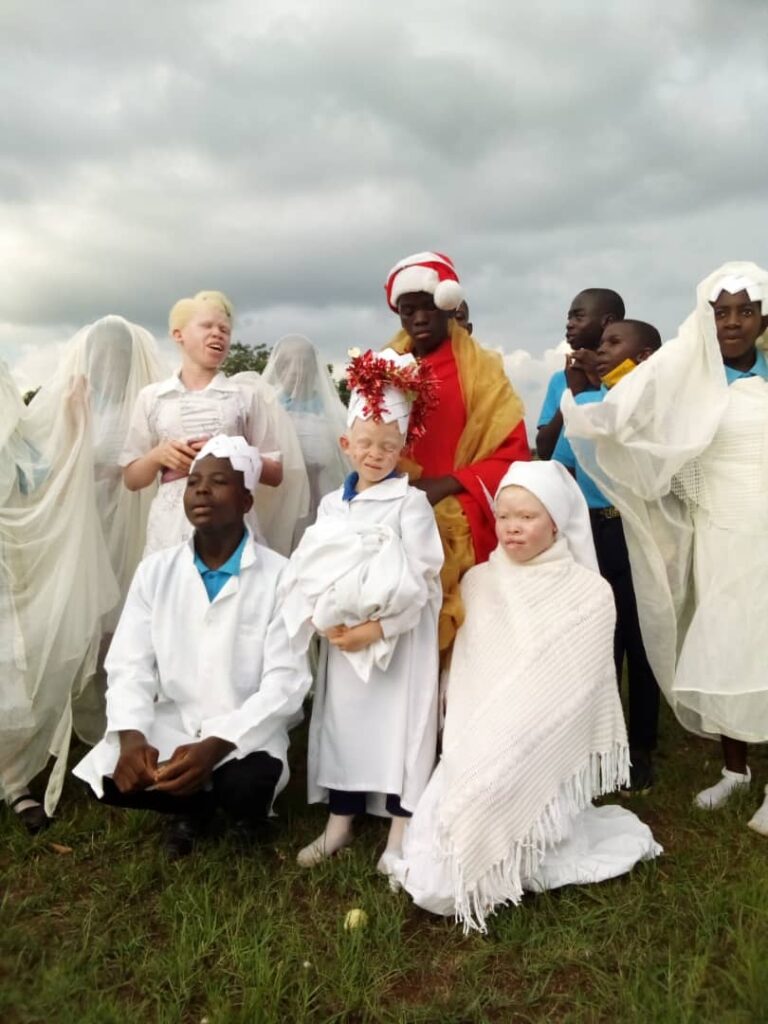
Front: Joseph, Child Jesus and Mary. In back angels and Father Christmas 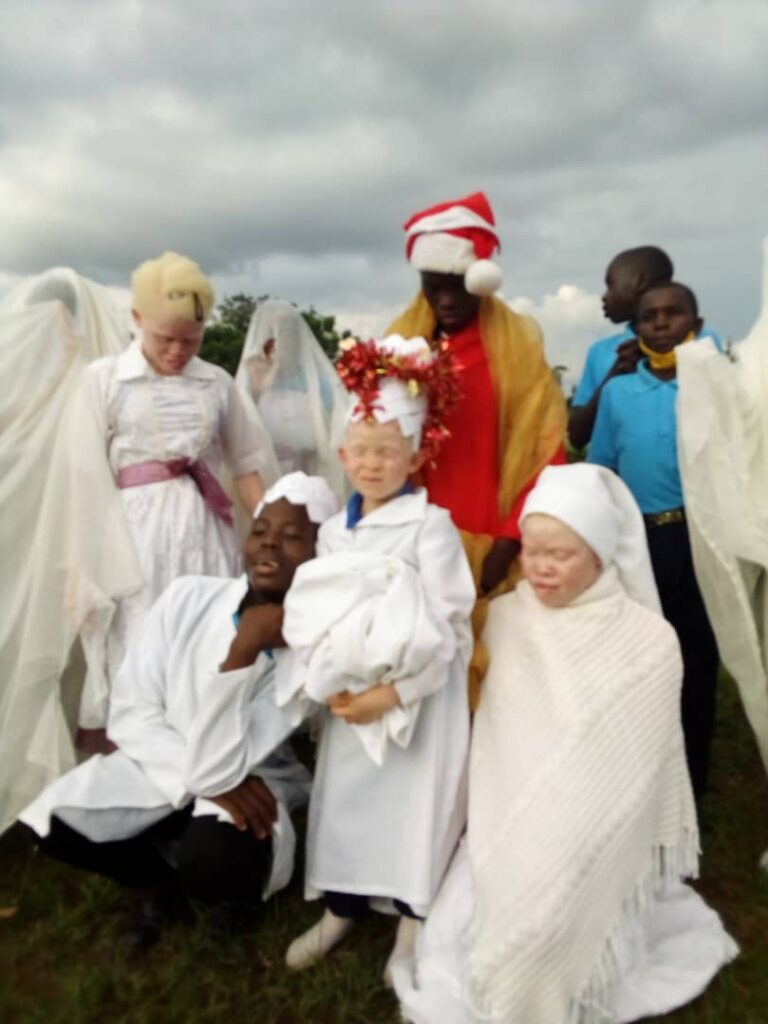
Front: Joseph, Child Jesus and Mary. In back Father Christmas and angels. 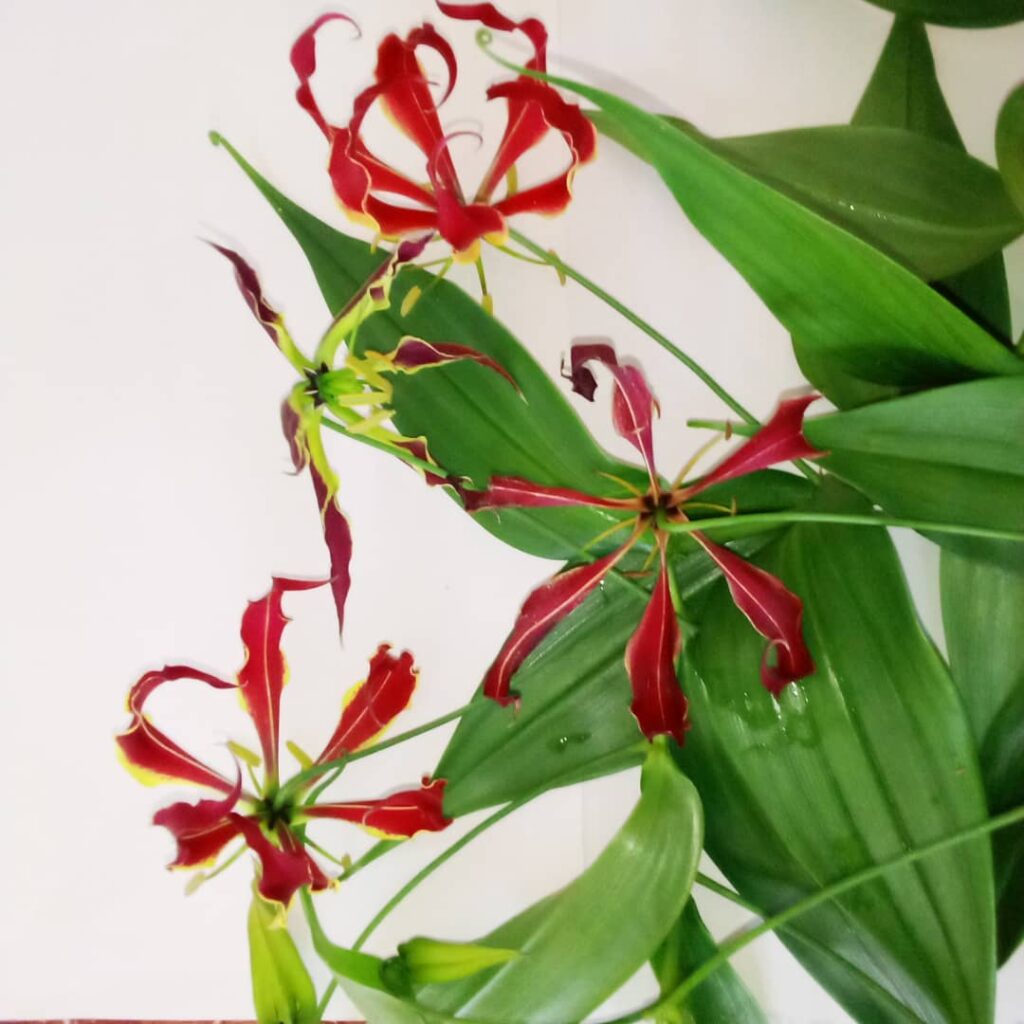
The Christmas flower 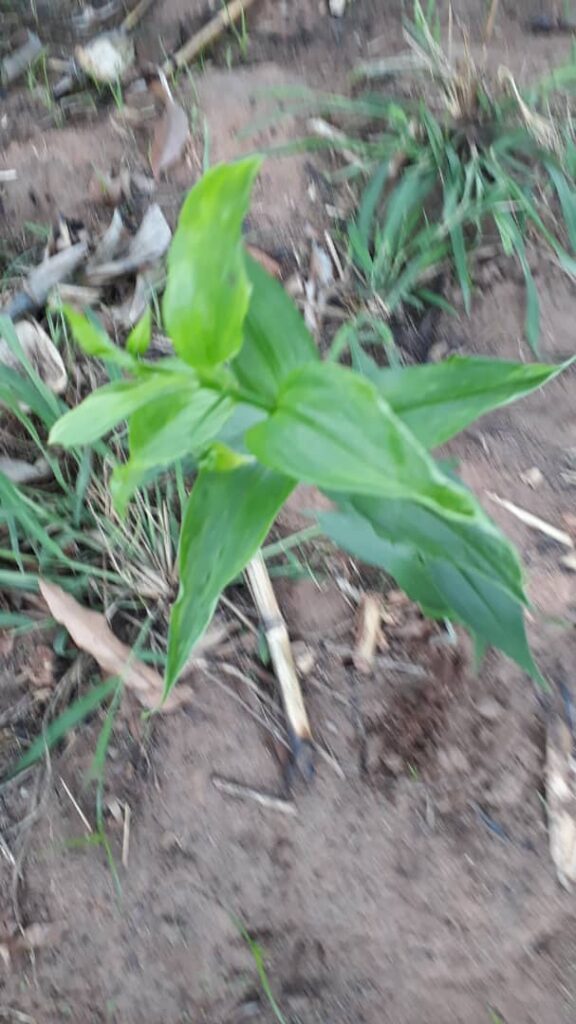
The Christmas flower before bloom. 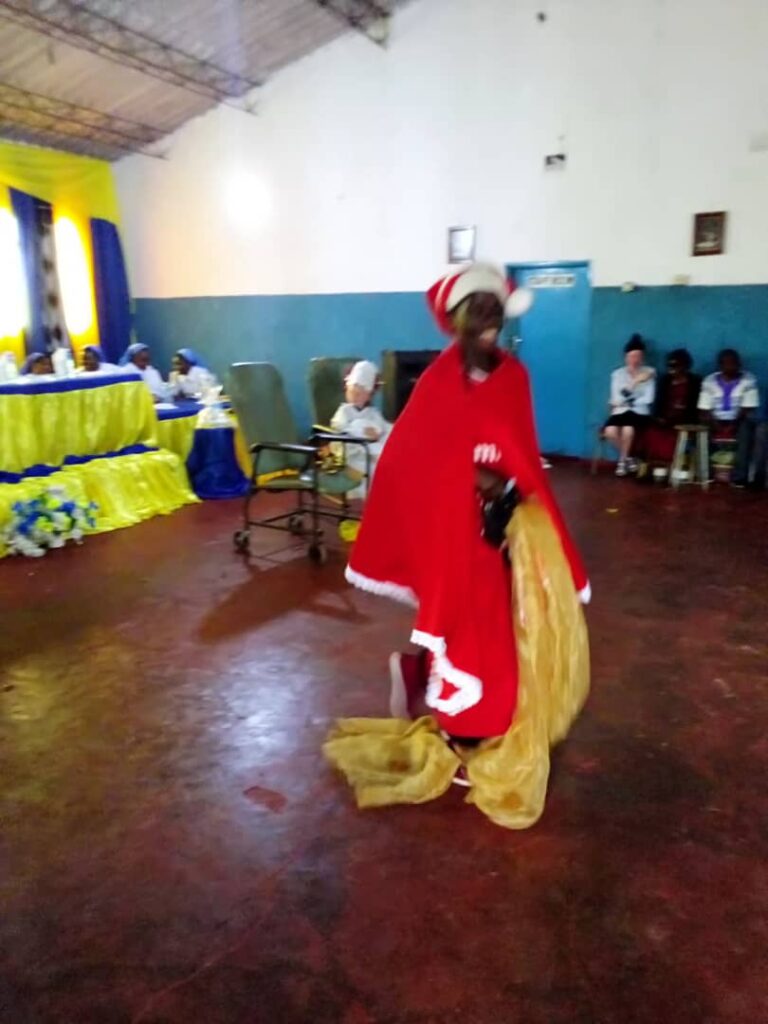
Father Christmas 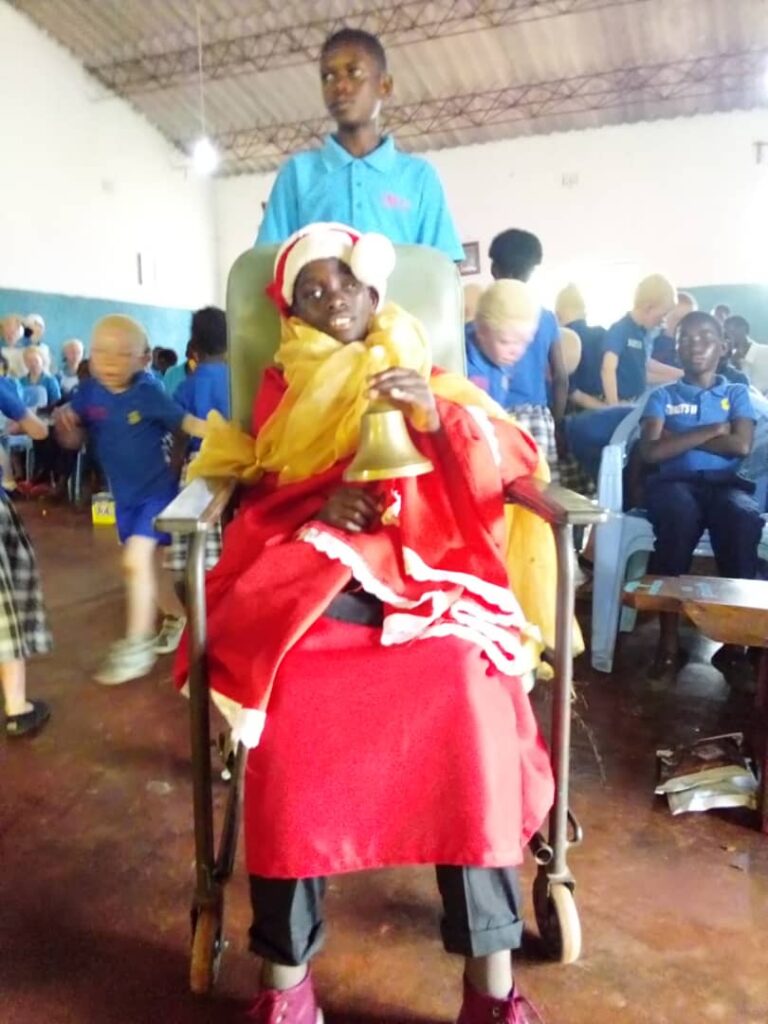
Father Christmas is driven in. 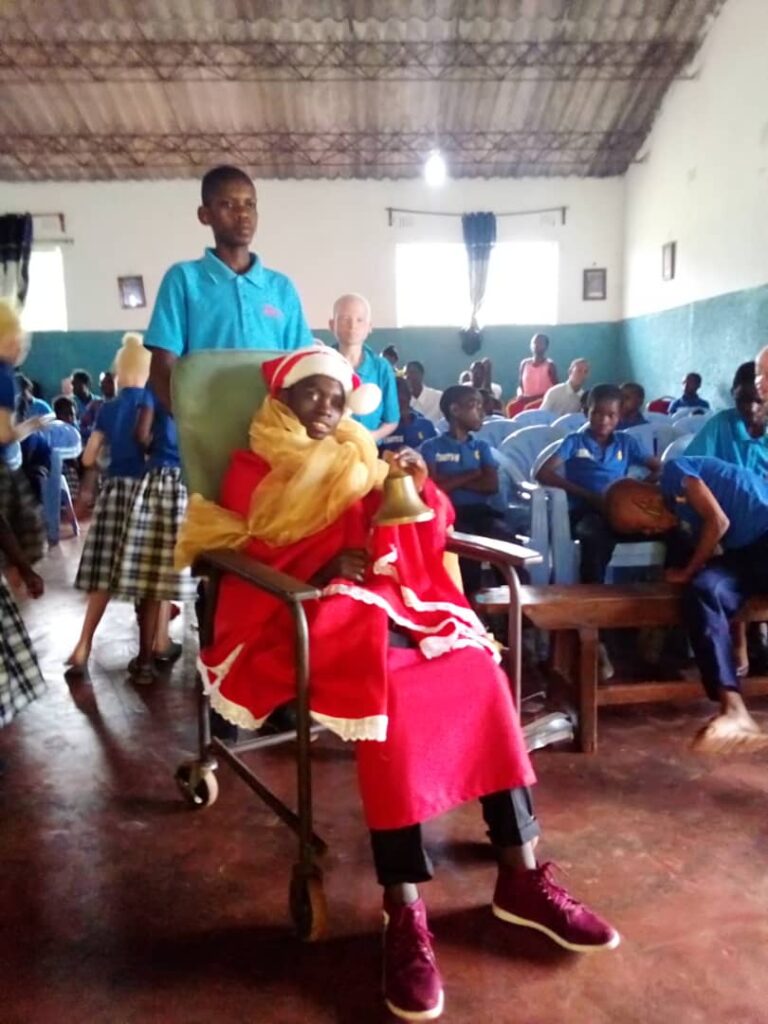
Father Christmas 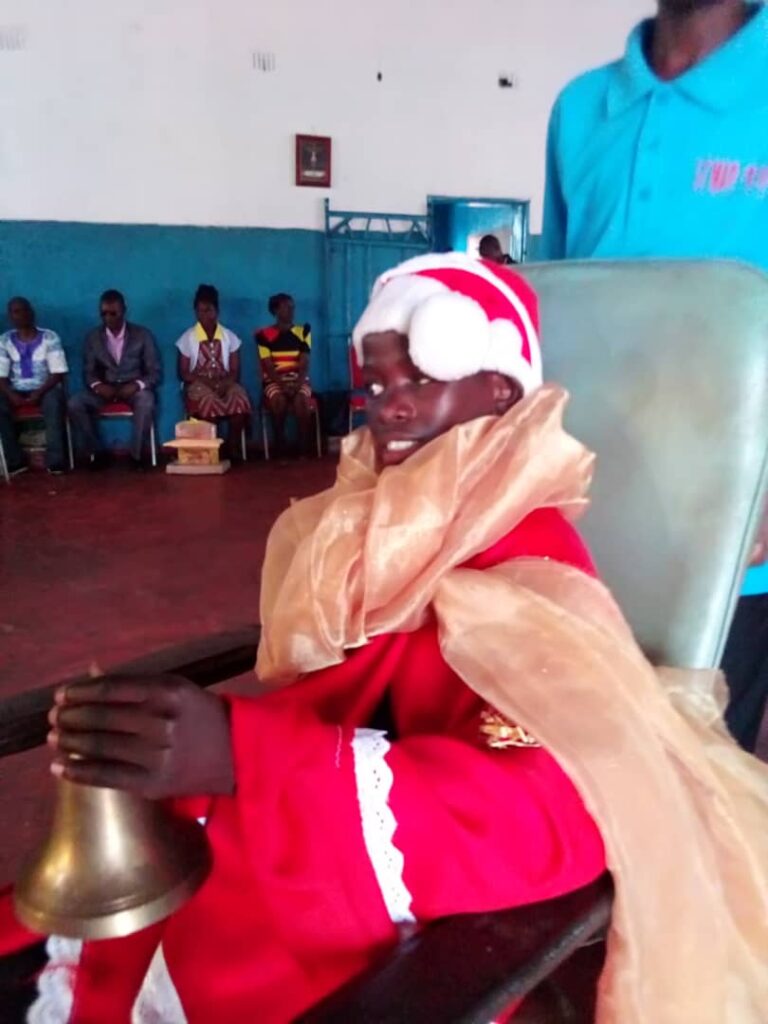
Father Christmas rings the bell for silence. 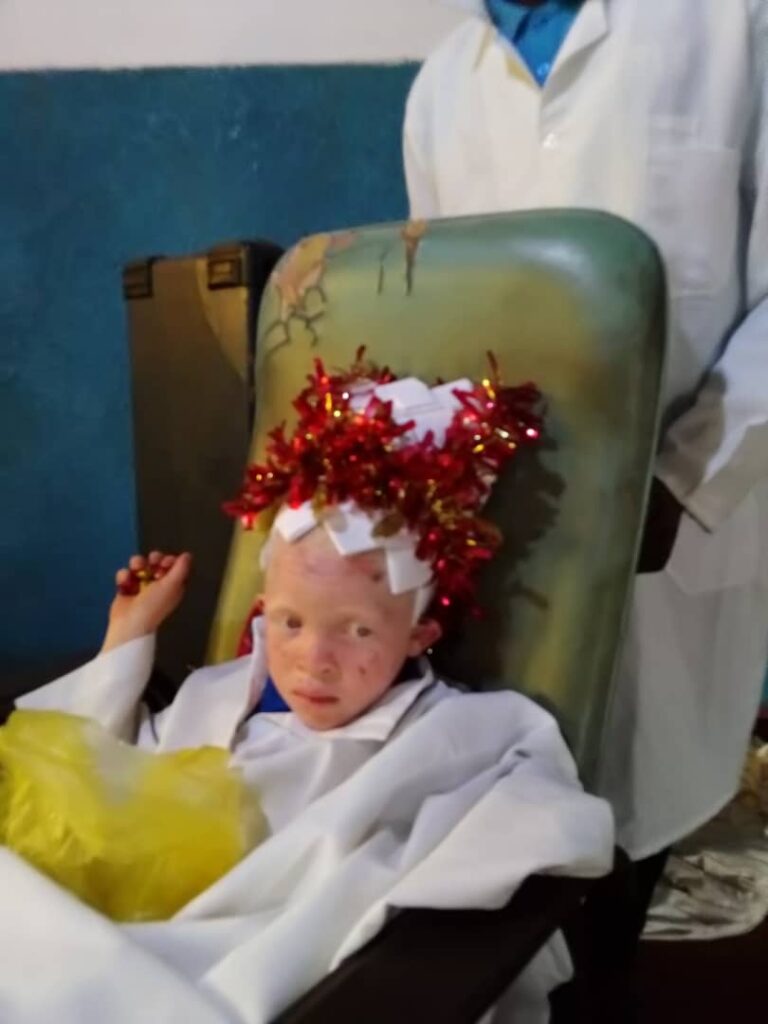
The Child Jesus 2020 with treats to distribute. 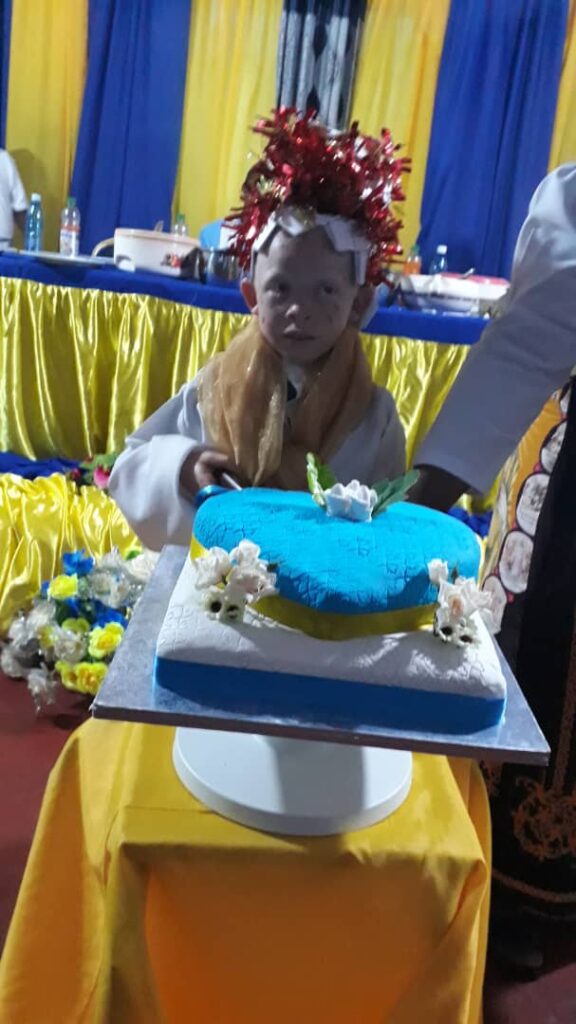
Child Jesus 2020 with special cake. 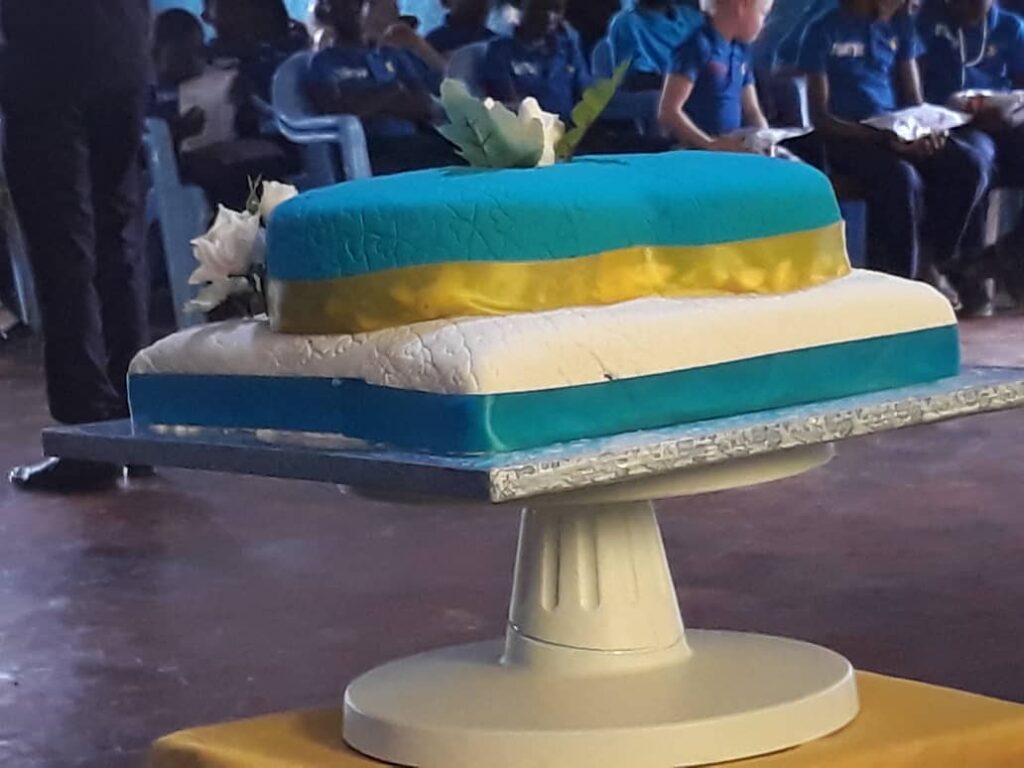
Christmas cake 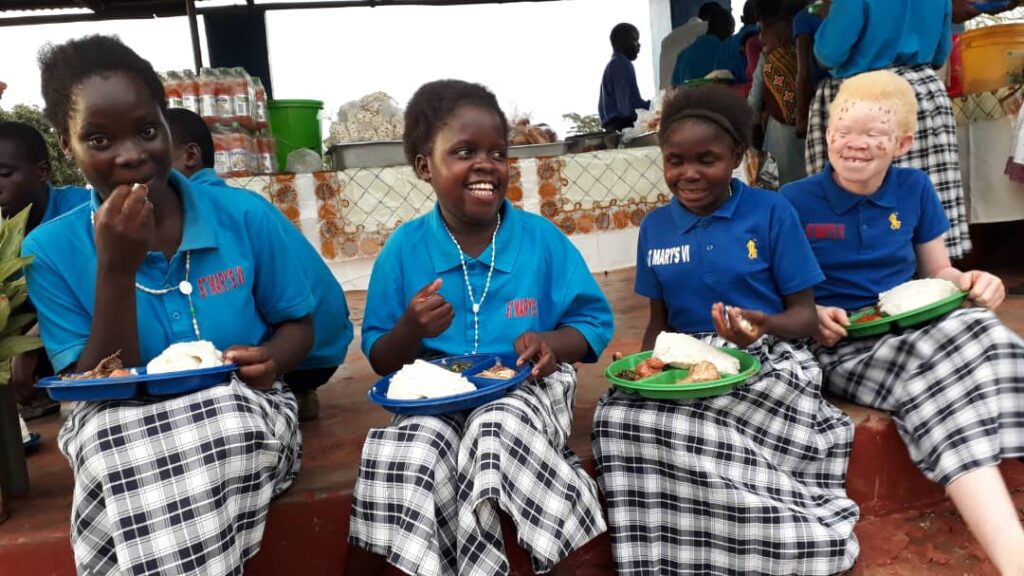
Enjoying a Christmas season meal. 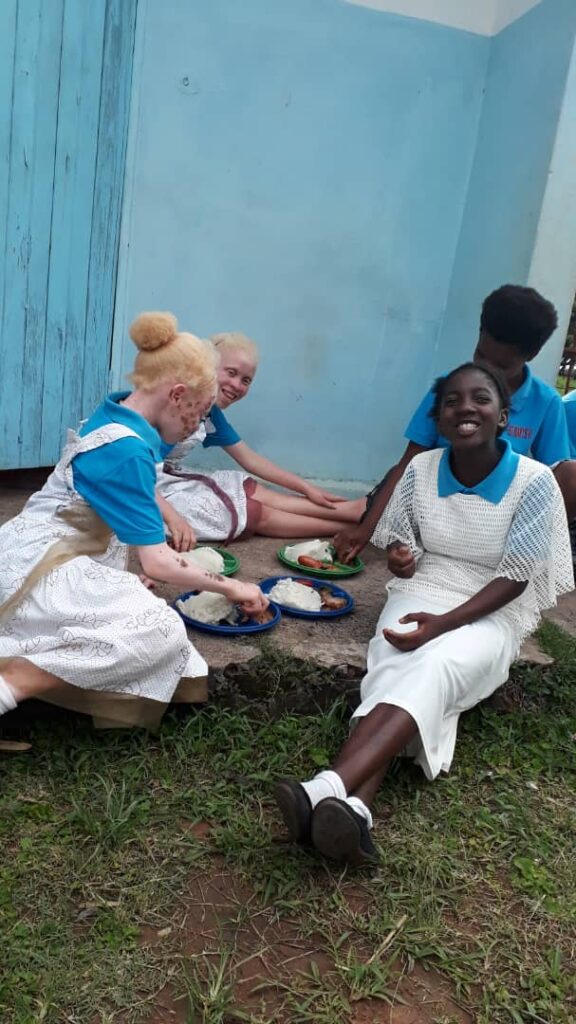
Enjoying meal 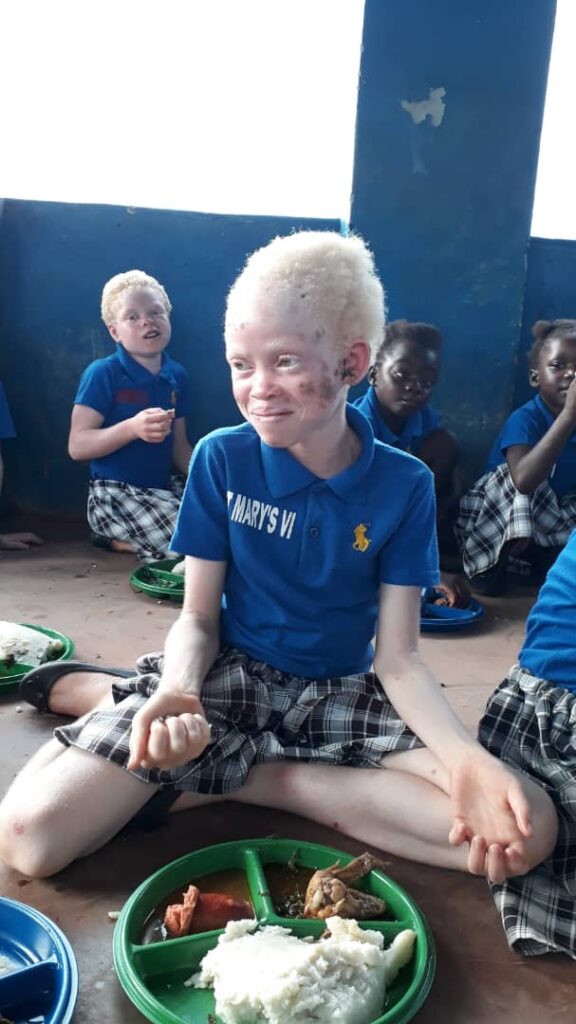
Christmas season meal 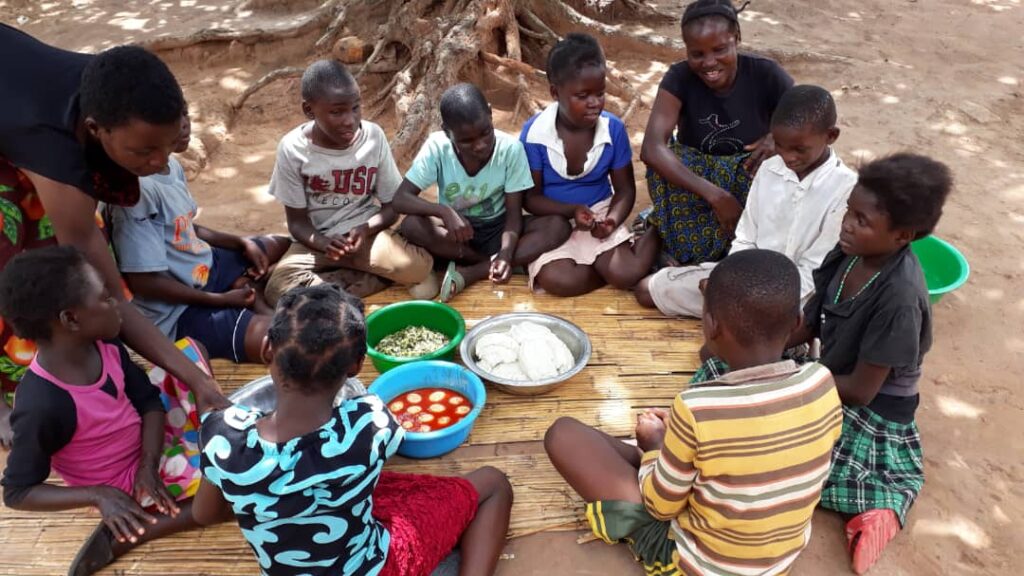
Enjoying food outside. 